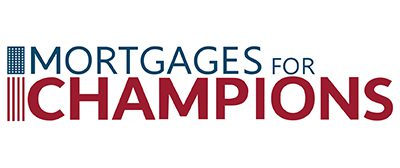MORTGAGES FOR CHAMPIONS – FHA, LOANS
The Economic Recovery Act of 2008 requires the Federal Housing Administration (FHA) to keep federally backed mortgage loan limits at 115% of local median values.
The agency establishes floor and ceiling limits to meet this requirement. If you want to buy a home this year using an FHA loan, you might wonder how this affects you.
Keep reading to learn about the latest FHA loan changes as well as our Mortgages for Champions Program.
An Overview of FHA Loans
FHA home loans are backed by the federal government. In other words, they’re insured by the Federal Housing Administration. However, you’d secure an FHA loan from a mortgage lender that’s been approved by the FHA.
These loans have lower minimum credit and down payment requirements compared to traditional loans. As a result, they’re popular with first-time homebuyers. In fact, over 83% of FHA loan originations were for homebuyers in this group in 2020.
H3’s – How They Work
An FHA loan has either a 15-year or 30-year term. In either case, it has a fixed interest rate.
Also, FHA home loans have flexible underwriting standards. They’re designed to help borrowers.
For instance, you might have less than perfect credit. Alternatively, you may not have sufficient cash savings to qualify for a traditional loan.
In that case, you may find that an FHA loan is ideal for helping you buy the home of your dreams. However, there’s a caveat—you must buy FHA mortgage insurance.
Guidelines for FHA Borrowers
Since its launch, the FHA mortgage program has helped tens of millions of families buy homes in the United States. Today, you must meet a few criteria to qualify for an FHA loan.
For instance, if you have a FICO score of 580 or more, you must make a 3.5% down payment for an FHA loan. If your FICO score is 500 or higher, you must make a 10% down payment. If your credit score is 499 or lower, you’re not eligible for an FHA loan.
Again, you must pay an FHA Mortgage Insurance Premium if you secure this kind of loan. Also, you must have a debt-to-income ratio of less than 43%.
You must also show that you have employment and a steady source of income to secure an FHA loan. Also, if you’re approved for the loan, you must use the home for your primary residence.
Is It Better than a Regular Loan?
A conventional loan isn’t backed by the federal government. With a traditional loan, lenders assume the full risk that you’ll repay your mortgage in full.
As a result, you must have a higher credit score to qualify for a conventional loan. You’ll usually need a credit score of at least 620. You must also have a steady income history.
You must also pay at least 3% of the value of the loan to enter the agreement. In fact, your down payment could range anywhere from 3% to 20%.
Finally, a conventional loan might have loan terms that last anywhere from eight years to 30 years instead of 15 to 30 years, as with an FHA loan.
Benefits of FHA Loans H3
Again, one of the top benefits of an FHA loan is that you can still purchase a home if you have a less-than-perfect credit score. The same applies if you have yet to establish a credit history. You may also pursue an FHA loan if your credit history shows that you’ve had problems making on-time payments.
For some, it can prove challenging to achieve a credit score of 620 for a traditional loan anytime in the near future. If you have a credit score of at least 580, however, most FHA-approved lenders can help you buy a home. Also, an FHA loan allows you to enter a mortgage agreement with a lower down payment, as mentioned earlier.
Things to Consider H3
Again, it’s important to understand that you must purchase mortgage insurance if you receive an FHA loan. Statistically, a lower credit score indicates that there’s a higher risk that you’ll default on your loan.
With this in mind, lenders must protect their interests. This circumstance affects FHA loan credit score rules. As a result, mortgage insurance is mandatory for FHA loans.
However, you can roll the cost of the insurance into your closing costs. Typically, the lender will divide your annual mortgage insurance premium into 12 installments as a part of your mortgage bill.
2022 FHA Loan Limits
In December 2021, the FHA announced its new loan limits for 2022. It’s important not to confuse the loan limit with home value.
The loan limit is the amount of all your mortgage payments that the FHA will insure over the term of your full loan. Across most of the United States, the loan limit will increase due to considerable home appreciation.
The FHA considers this kind of real estate market behavior as it makes its yearly loan limit assessment. The new loan limit will apply to any FHA loans originated on or after January 1, 2022. The national conforming loan limit is $647,200.
For 2022, the minimum loan limit, or “floor,” is $420,680. This rate is 65% of the national conforming loan limit. A loan of this size might pay for a home that’s appraised at about $250,000. Meanwhile, the maximum FHA-insured loan limit will increase from $822,375 to $970,800 in 2022.
FHA Streamline Financing
You may have also thought about refinancing your FHA loan. In that case, you may want to consider an FHA Streamline Refinance loan.
With an FHA Streamline Refinance loan, you’re refinancing your current FHA-insured loan into another one. Your payments on the existing loan must be up-to-date to qualify for this program.
It’s important to note that an FHA Streamline Refinance loan is not the only FHA to FHA refinancing product.
Under the right circumstances, an FHA Streamline Refinance loan is a good deal for borrowers. There’s no prepayment penalty with an FHA-insured loan. However, you must wait 211 days after your last FHA loan before you can qualify for an FHA Streamline Refinance loan.
Appraisals for FHA Streamline Loans H3
Another benefit of an FHA Streamline Refinance loan is that it typically doesn’t require that you have your home reappraised. In most cases, the lender will base the loan-to-value ratio (LTV) on your last appraisal. Sometimes, however, the lender may require a reappraisal.
Still, there are some limitations with this kind of financing. For example, you cannot cash out using an FHA Streamline Refinance loan.
Also, the loan must provide you with a financial benefit of at least 5%. Alternatively, the loan must enable you to move from an Adjustable Rate Mortgage (ARM) to a fixed-rate loan.
Overcoming Benefit Requirement Shortcomings
For some borrowers, an FHA Streamline Refinance loan will not meet the 5% benefit requirement. However, you can still finance your existing FHA loan with another one. For example, you may qualify for an upfront mortgage insurance (UFMIP) refund.
You must have your home reappraised to qualify for a UFMIP refund. The lender will then reassess the loan-to-value ratio of your new loan product. The new LTV cannot exceed 97.75%.
Insurance and Streamline Loans
The insurance that you must purchase for any FHA loan is called the Mortgage Insurance Premium (MIP). There are two kinds of FHA mortgage insurance:
1. Upfront Mortgage Insurance Premium (UFMIP)
2. Annual Mortgage Insurance Premium
UFMIP mortgage insurance is 1.75% of the mortgage for an FHA loan. However, the premium for an Annual Mortgage Insurance Premium varies based on several characteristics, including the:
• Loan amount
• Loan terms
• LTV
An experienced mortgage lender can walk you through the various possible Annual Mortgage Insurance Premium scenarios.
FHA Streamline Loan Costs
Usually, an FHA Streamline Refinance loan has the same fees as other FHA programs. Sometimes, however, the rates of this kind of loan are even lower. You can find out current FHA loan rates for an FHA Streamline Refinance loan by speaking with a reputable mortgage lender.
With an FHA Streamline Refinance loan, you’d usually pay closing costs. These closing costs might include lender origination fees as well as escrow or title expenses.
Often, these fees can equal 3% to 5% of the total loan amount. You’d also need to establish an escrow account to hold reserves for property taxes and home insurance.
For dedicated public servants, however, our Mortgages for Champions program can help you to bypass these requirements.
Mortgages for Champions
RealFi Home Funding created the Mortgages for Champions program to thank our selfless public servants. It’s available to professionals who serve the public in several capacities, including:
• Educators
• EMTs
• Firefighters
• Government employees
• Law enforcement officers
• Medical personnel
• Military personnel
Mortgages for Champions is our way of showing our appreciation for what you do for our communities and us. The program allows you to bypass all lender’s fees or closing costs. Sometimes, this savings can add up to $1,700 or more.
Yes, you read right. We remove all closing fees for our champions. That means no application fee, no processing fee, no underwriting fee, and no commitment fee.
Don’t Wait. Get Financed, Now!RealFi Offer the Best Mortgages for Champions
Hopefully, you now have a better understanding of 2022 FHA loan requirements as well as our Mortgages for Champions program. At RealFi Home Funding, it’s our mission to make buying a home more accessible, even if you don’t have the best credit or the highest paying job.
Please feel free to apply today to learn more about purchasing a home or refinancing your mortgage with a down payment as low as 3.5%.
Related articles – How Will the Omicron Variant Affect Mortgage Rates? Mortgages For Champions – Best Mortgages for Doctors Good Tips for First Time Home Buyers Home Loans for Nurses: A Complete Guide to Buying and Refinancing


